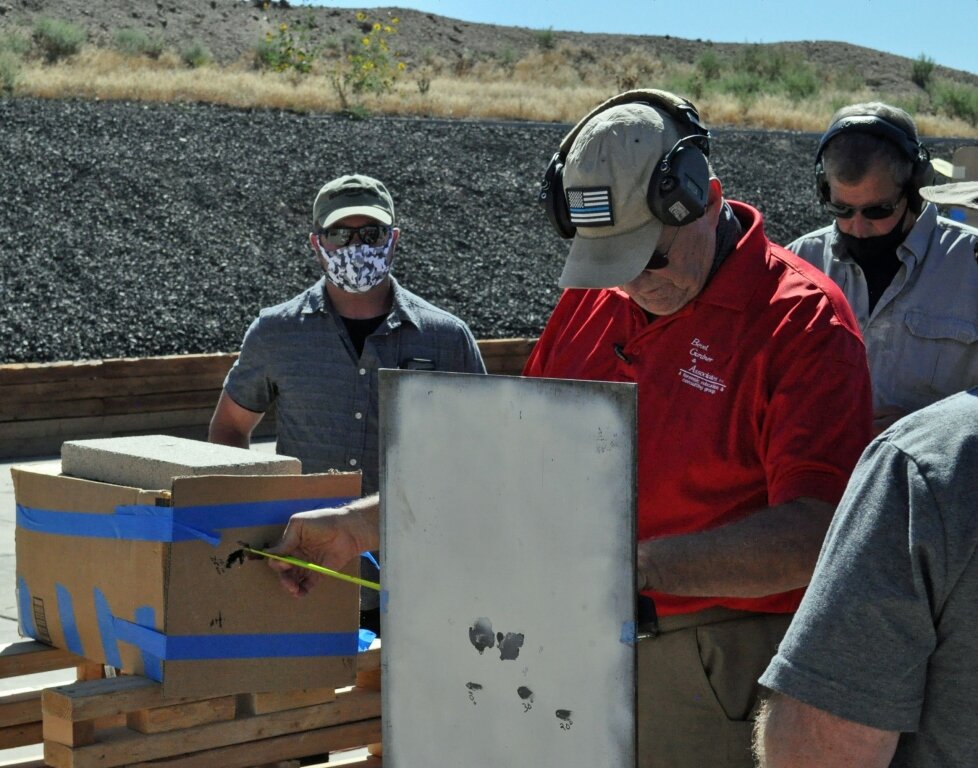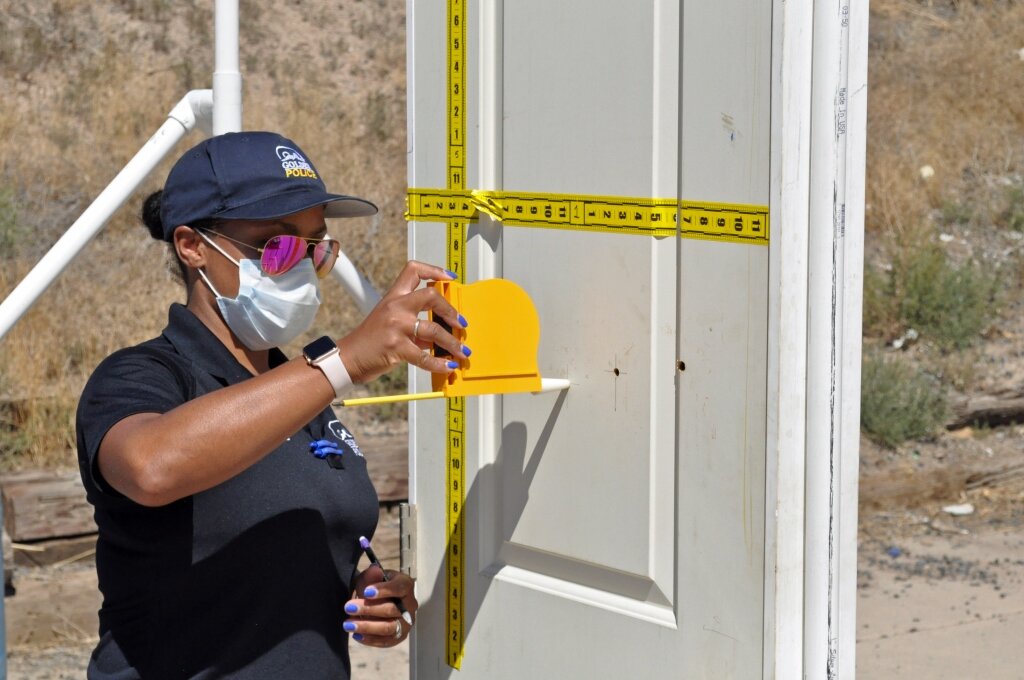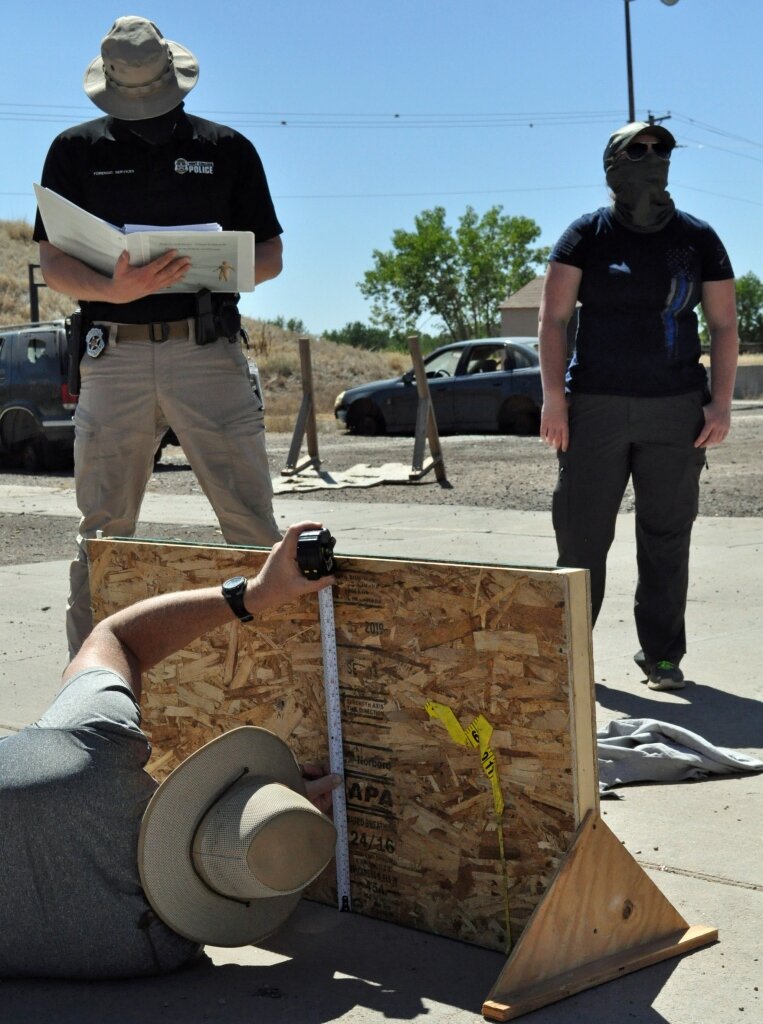The purpose of Forensic Science is to examine and collect information to help determine the facts at the scene of the crime. It may be used to confirm or exclude a suspect from further investigation. Bevel Gardner and Associates’ experts teach the proper analysis techniques preparing for presentation in a court of law. Typically our courses are hosted by police departments nationwide. If your agency is interested in hosting a course, please contact us.
The specific courses we offer are: Crime Scene Reconstruction, Crime Scene Processing, Shooting Incident Reconstruction, Officer Involved Shootings, and Bloodstain Pattern Analysis
Earlier this month, Tom "Grif" Griffin and Jonathyn Priest taught Shooting Incident Reconstruction at the Greeley, Colorado Police Department. Our classes look a little different these days. Students’ and Instructors’ temperatures are taken before each class, and everyone wears masks. One day we used the infrared thermometer to determine the temperature of the pavement outside. It was 113 degrees! Definitely a hot September day in Colorado.
Shooting Incident Reconstruction provides the experienced detective or crime scene investigator with the skills necessary to analyze and reconstruct shooting incidents. Students are taught to recognize and properly document the unique attributes of a shooting scene. Through a series of classes, laboratories and practical exercises, students will learn to interpret the dynamic relationship between the scene, evidence, and victim(s) injuries.
The methodology and techniques needed to properly analyze and reconstruct the scene are emphasized. Students will be able to apply these skills to determine position of shooter(s), victim(s), and critical evidence, and to determine sequence of events.
Course Objectives are:
Firearms & Ammunition Design and Nomenclature
Projectile Trajectories and Bullet Stability
Wound Dynamics
Computation of Projectile Trajectories
Unusual Surfaces and Ricochet Laboratory
The Scientific Method
Scientific Method as it Applies to Experimental Design
Reconstruction Analysis Methodology
Original Experimentation Laboratory
Shooting Incident Reconstruction Practical Exercise







